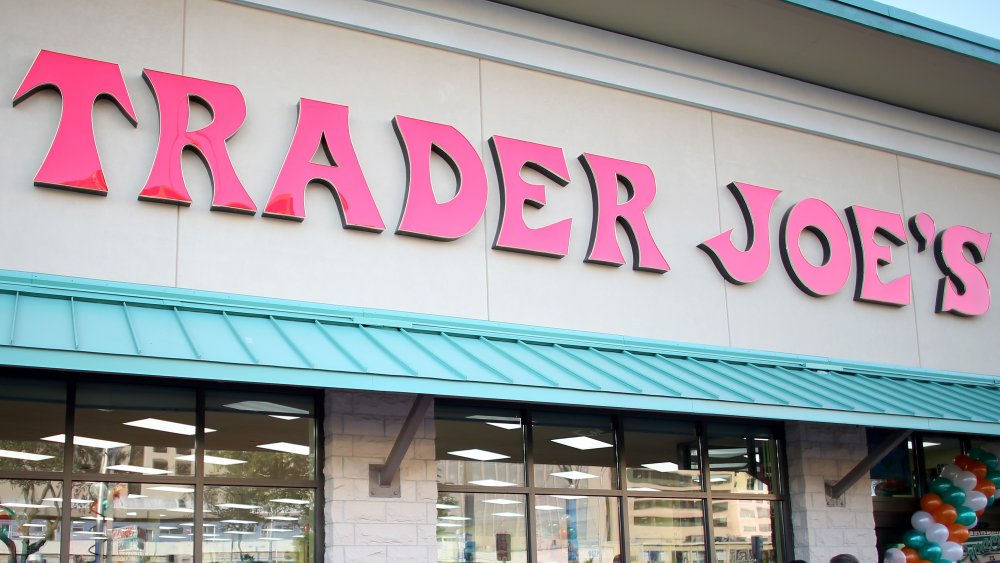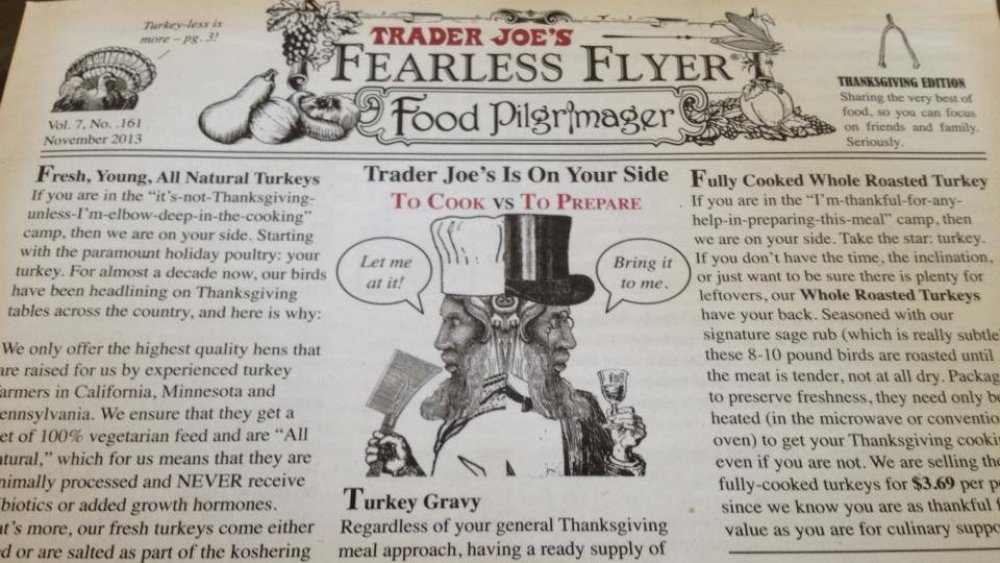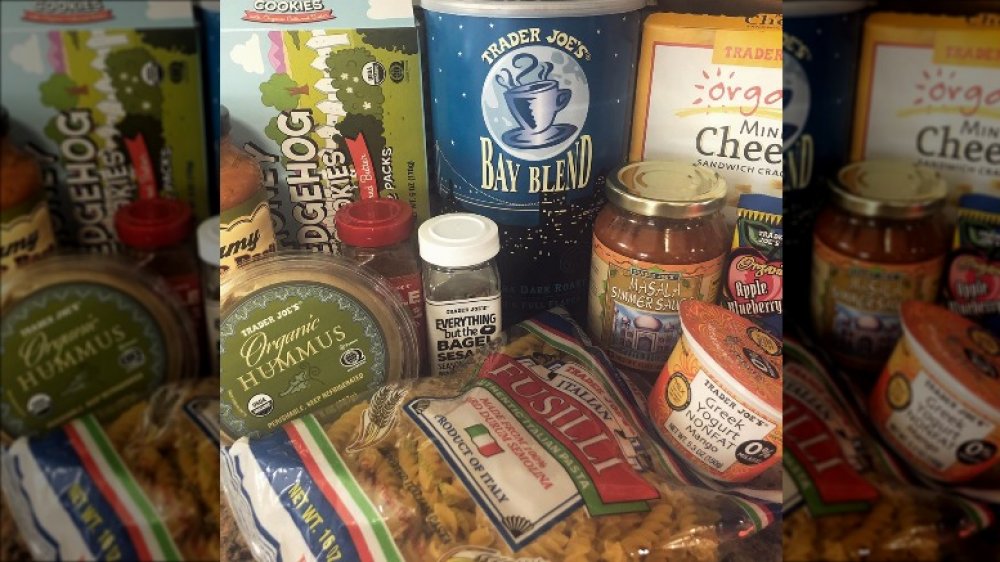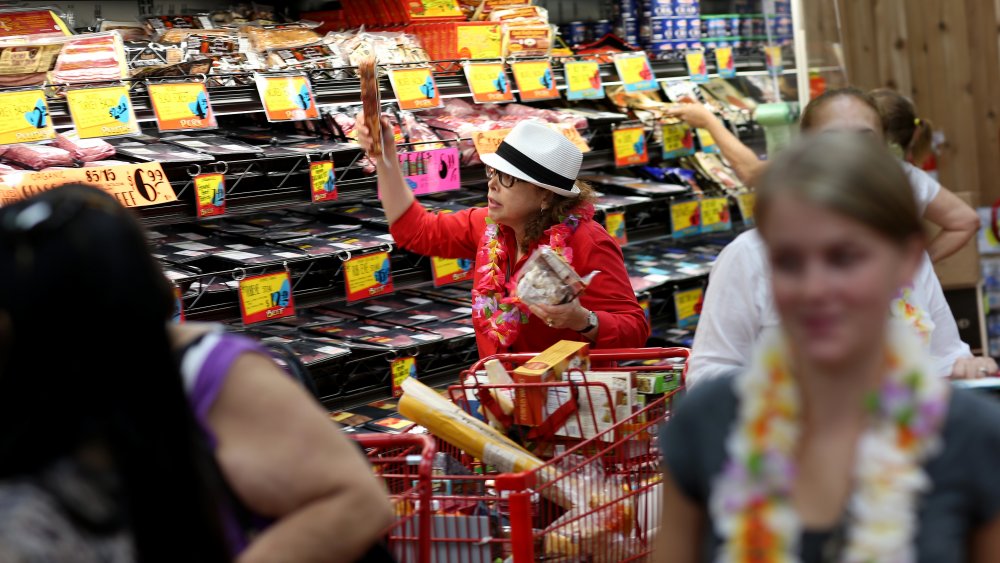This Is Why Trader Joe's Food Is So Cheap
Trader Joe's is everybody's favorite bargain-hunting paradise. Their stores are bright, fun, and happy places jam-packed with products we never even knew we needed until they jumped right off the shelves and into our carts. The real pleasure, though, lies at the checkout counter, where we find that, despite the fact that we maybe went a little crazy overloading that cart, the overall price is nowhere near as bad as feared.
So how does Trader Joe's manage to keep their prices so low? Basically, they take a tried-and-true approach of keeping their own expenses down, and they pass those savings on to shoppers.
Trader Joe's doesn't blow big bucks on advertising
Ever heard a Trader Joe's ad on the radio, seen one on TV, or perhaps passed by a Trader Joe's billboard while driving? No, you haven't, because Trader Joe's isn't about to spend their advertising budget on these big-ticket items.
And, although they are active community partners and donors, they also don't splash out on too many high profile sponsorships. Instead, as far as publicity goes, they prefer to rely on good old word of mouth, which is free, as well the minimal cost of printing up and mailing out (or digitizing and emailing) their Fearless Flyers that highlight each month's special deals (via Taste of Home).
Trader Joe's sticks to house brands
Another cost-cutting strategy of Trader Joe's, according to Business Insider, is the fact that fully 80 percent of the items they offer are produced under their own private label(s) — Trader Joe's, Trader Ming's, Trader Giotto's, and of course the famous Charles Shaw wines, aka Two Buck Chuck.
This means that Trader Joe's buys its products directly from their suppliers and does not have to pay any middlemen. It also means that their products are exclusive to the chain, so if you get a craving for, say, one of their chili-lime chicken burgers, you're not going to be able to find that same item on sale at Walmart.
Trader Joe's has a low overhead
Like their sister grocery chain Aldi, Trader Joe's operates its own stores on a pretty streamlined budget. They keep the stores low-key, and they don't feel the need to offer all those extra supermarket amenities such as full-service delis, in-house bakeries, or coffee shops. The stores are themselves much smaller (square footage-wise) than other major grocery chains, which reduces the overall utility costs, as does their use of energy-efficient lighting.
Even while they keep costs down, though, Trader Joe's doesn't stint on atmosphere. Their nautical/tiki décor is cheap yet cheerful, and those big smiles on the faces of the Hawaiian-shirted employees are as genuine as they are free of charge.



